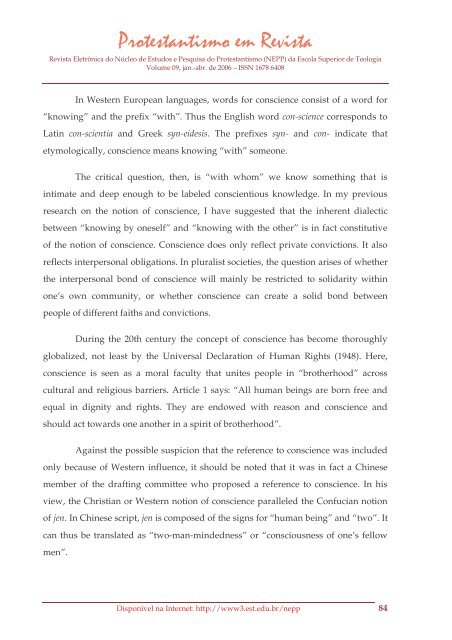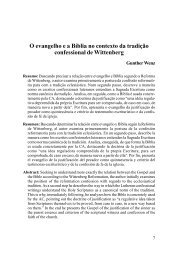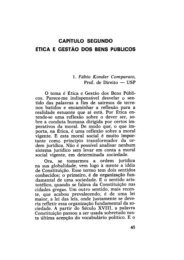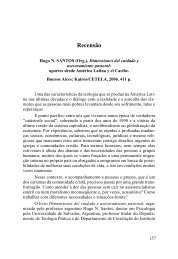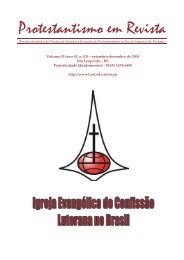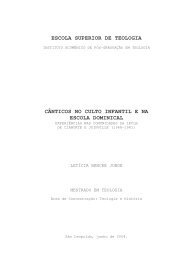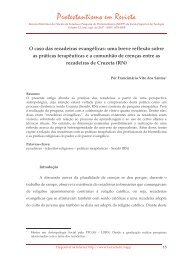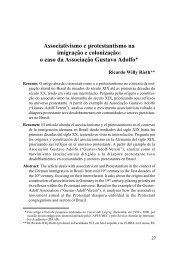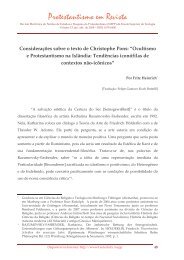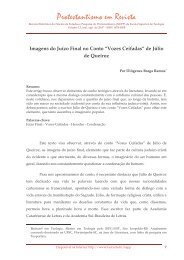Protestantismo em Revista, volume 09 (Ano 05, n.1) - Faculdades EST
Protestantismo em Revista, volume 09 (Ano 05, n.1) - Faculdades EST
Protestantismo em Revista, volume 09 (Ano 05, n.1) - Faculdades EST
You also want an ePaper? Increase the reach of your titles
YUMPU automatically turns print PDFs into web optimized ePapers that Google loves.
<strong>Revista</strong> Eletrônica do Núcleo de Estudos e Pesquisa do <strong>Protestantismo</strong> (NEPP) da Escola Superior de TeologiaVolume <strong>09</strong>, jan.-abr. de 2006 – ISSN 1678 6408In Western European languages, words for conscience consist of a word for“knowing” and the prefix “with”. Thus the English word con-science corresponds toLatin con-scientia and Greek syn-eidesis. The prefixes syn- and con- indicate thatetymologically, conscience means knowing “with” someone.The critical question, then, is “with whom” we know something that isintimate and deep enough to be labeled conscientious knowledge. In my previousresearch on the notion of conscience, I have suggested that the inherent dialecticbetween “knowing by oneself” and “knowing with the other” is in fact constitutiveof the notion of conscience. Conscience does only reflect private convictions. It alsoreflects interpersonal obligations. In pluralist societies, the question arises of whetherthe interpersonal bond of conscience will mainly be restricted to solidarity withinone’s own community, or whether conscience can create a solid bond betweenpeople of different faiths and convictions.During the 20th century the concept of conscience has become thoroughlyglobalized, not least by the Universal Declaration of Human Rights (1948). Here,conscience is seen as a moral faculty that unites people in “brotherhood” acrosscultural and religious barriers. Article 1 says: “All human beings are born free andequal in dignity and rights. They are endowed with reason and conscience andshould act towards one another in a spirit of brotherhood”.Against the possible suspicion that the reference to conscience was includedonly because of Western influence, it should be noted that it was in fact a Chines<strong>em</strong><strong>em</strong>ber of the drafting committee who proposed a reference to conscience. In hisview, the Christian or Western notion of conscience paralleled the Confucian notionof jen. In Chinese script, jen is composed of the signs for “human being” and “two”. Itcan thus be translated as “two-man-mindedness” or “consciousness of one’s fellowmen”.Disponível na Internet: http://www3.est.edu.br/nepp 84


